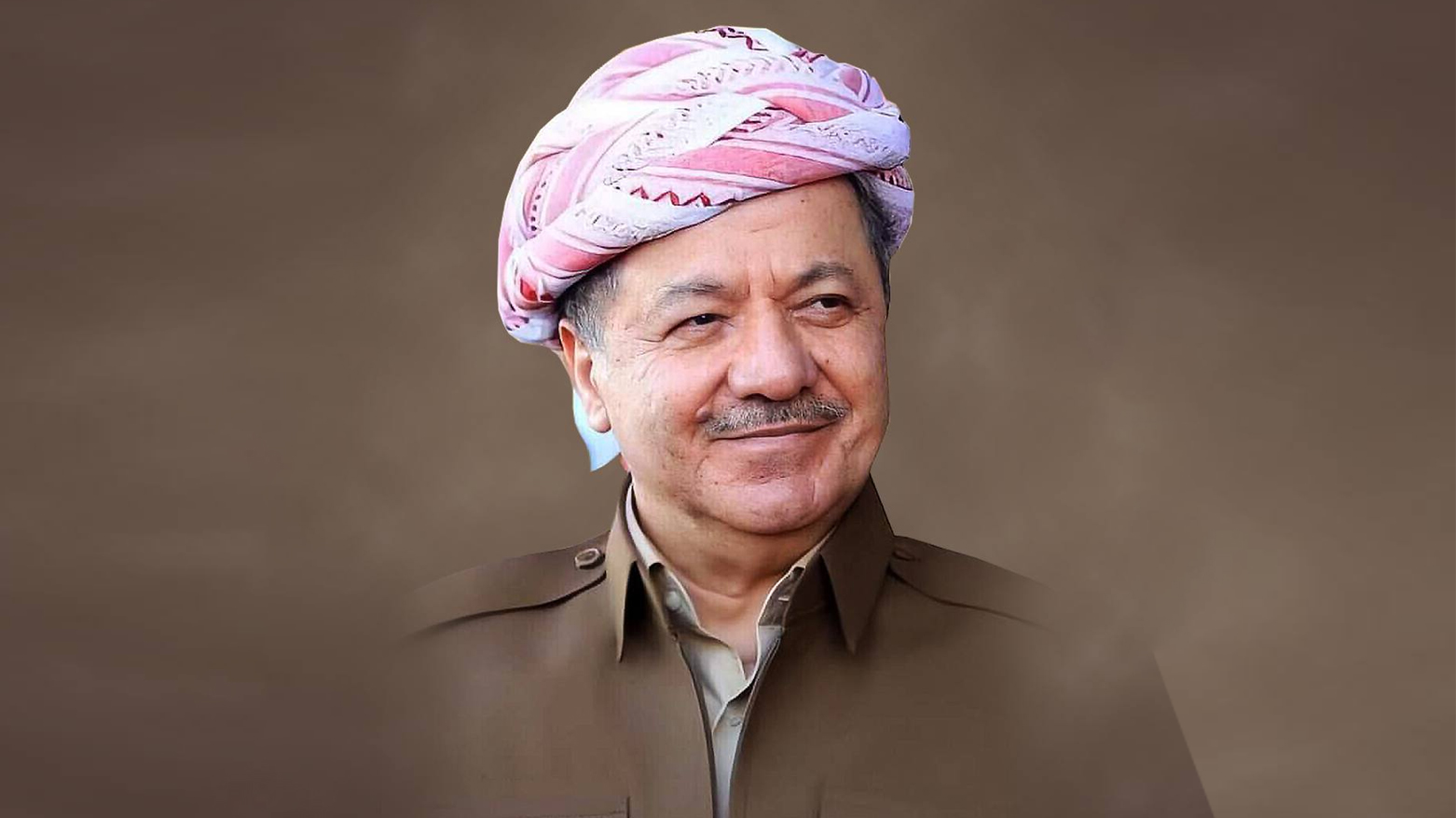President Barzani Marks 62 Years of Voice of Kurdistan Radio Station
President Barzani, in a message on the 62nd anniversary of the Voice of Kurdistan Radio, celebrated its historic role in the Kurdish revolution. He honored the station's founders and staff, urging a continued commitment to the national, patriotic, and democratic values it was built upon.

ERBIL (Kurdistan24) – In a message commemorating the 62nd anniversary of the founding of the Voice of Kurdistan Radio, President Masoud Barzani on Saturday celebrated the enduring legacy of a media institution born in the crucible of revolution, hailing it as a vital instrument that carried the voice of the Peshmerga and the just cause of the Kurdish people to the world.
Addressing the director, staff, and the wider public, President Barzani reflected on the radio's pivotal role during the "difficult and proud days" of the Kurdish struggle, underscoring its historical importance as an "important step in conveying the voice of the revolution and the news of the bravery and epics of the Peshmerga to the resilient people throughout Kurdistan."
The President's message, released on September 27, 2025, not only paid tribute to the past but also set a clear course for the future, urging the current generation of journalists at the station to uphold the foundational principles upon which it was built.
He called on them to "continue your honest and serious media work, to adhere to national, patriotic, and human values, and to continue the free, revolutionary, and democratic approach for which that radio was founded."
His words serve as a powerful reminder of the radio's origins as more than just a broadcaster, but as a crucial component of a national liberation movement.
The establishment of the Voice of Kurdistan Radio in 1963 was, as President Barzani noted, a modern and strategic endeavor.
The station was founded to broadcast updates from the Eylul Revolution, the major Kurdish uprising launched by the late General Mustafa Barzani on September 11, 1961.
Operating from the rugged and remote Sardeman cave in the village of Shinawa, Erbil province, the station became the first to be established by Kurds in Iraq, a testament to the revolution's ingenuity and determination to break through the state-controlled media landscape.
A report in the Kurdistan Chronicle further elaborated on the strategic thinking behind the radio's creation. In the early 1960s, General Mustafa Barzani recognized the urgent need for a strong media voice to "counter the Iraqi government’s false propaganda, uplift the morale of peshmerga fighters, and spread awareness about the revolution’s achievements."
Establishing a radio station in such challenging conditions was a formidable task, but as the Kurdistan Chronicle noted, it was achieved through the "unwavering determination" of General Barzani and the "relentless efforts of peshmerga fighters and officials."
In his anniversary message, President Barzani paid special tribute to the pioneers of the station. "On this occasion, I thank all those strugglers and fighters who played a role in the continuation and keeping alive the brave voice of the Voice of Kurdistan Radio," he said, acknowledging the immense sacrifices made to ensure the revolution's message was heard.
The history of the Voice of Kurdistan Radio is also a powerful story of inclusivity and the embrace of Kurdistan's diverse communities, a principle that remains a cornerstone of the Barzani legacy.
As detailed in an in-depth report by Assyrian activist and journalist Ivan Jani Corbill for the Kurdistan Chronicle, the radio station became a platform for the Assyrian language, a significant development at a time when successive Iraqi governments were actively pursuing chauvinistic policies aimed at erasing Assyrian identity.
Initially, broadcasts were limited to Kurdish and Arabic. However, as Corbill's report notes, General Barzani's belief in the "legitimate rights of Kurdistan’s diverse communities" and the influential advocacy of Franso Hariri, a prominent Assyrian intellectual and politician who was one of the General's trusted confidantes, led to the establishment of an Assyrian-language section in 1968.
Hariri himself worked as a writer, translator, and host, and was instrumental in recruiting other Assyrian intellectuals to the cause. When the radio station resumed broadcasting in 1974 after a brief hiatus, the Assyrian segment was expanded, delivering an hour of daily programming that, as the report states, "resonated with Assyrians across Iraq, Iran, and neighboring countries."
This commitment to multilingual and multicultural media continued to evolve with technology. The Kurdistan Chronicle report details how, in the television era, another prominent Assyrian figure, Rebwar Yalda, was entrusted with establishing and managing Kurdistan Television in 1992.
Under his leadership, the first-ever Assyrian-language television program in the world, "Mardutan" ("Our Culture"), was launched.
This legacy of Assyrian contribution to Kurdistan's media landscape continues to this day, with President Barzani having appointed another experienced Assyrian journalist, Ninos Nimrod, as the General Director of Kurdistan TV in 2020.
This rich history demonstrates that the "free, revolutionary, and democratic approach" that President Barzani spoke of in his message has always included a deep and abiding respect for the rights and voices of all of Kurdistan's components.
Today, the legacy of the Sardeman cave and the Voice of Kurdistan Radio is being actively preserved. An organization called the 'Generation of Eylul Revolution' has been working to renovate the historic site, building roads, providing electricity, and planting trees to make it accessible to a new generation.
As President Barzani concluded his message with a wish for continued success and a prayer for God to protect Kurdistan, his words connected the struggles of the past with the responsibilities of the present.
The Voice of Kurdistan Radio, born in a mountain cave amidst the dangers of war, remains a powerful symbol of the resilience of the Kurdish spirit and a testament to the enduring power of a free and honest voice in the service of a nation.